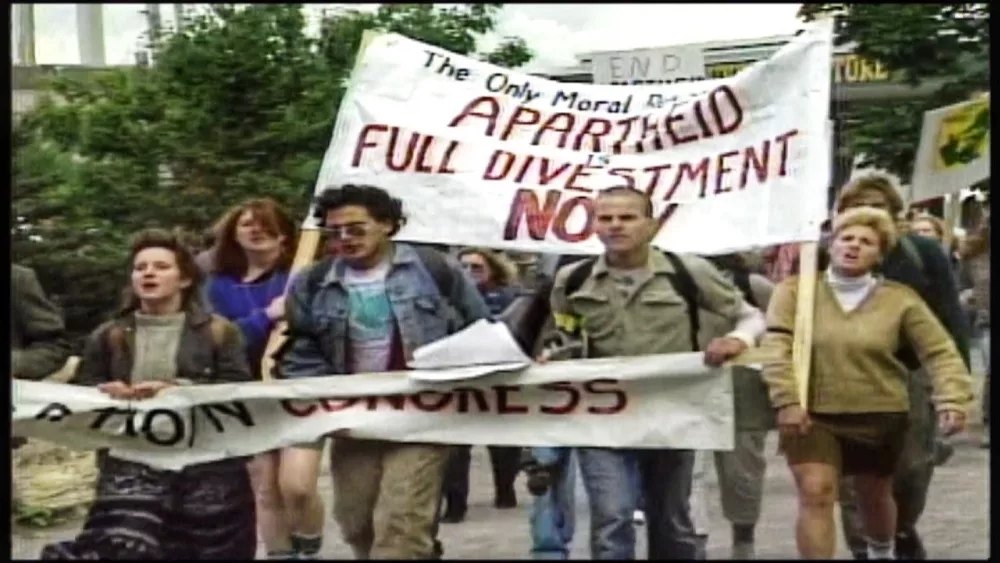BURLINGTON, Vt. (WCAX) – It may only be day five of pro-Palestinian protests on the University of Vermont campus, but from the Vietnam War to anti-apartheid marches in the 1980s, the state’s flagship school has a decades-long history of student activism.
“UVM has been the largest campus in the state of Vermont and has seen its share of student protest and demonstration,” said Amanda Gustin with the Vermont Historical Society.
Generations of students challenged issues locally and globally. UVM students rallied against the Vietnam War throughout the ‘60s and ‘70s
There were protests over the U.S. bombing of Cambodia and in solidarity with Kent State students after the Ohio National Guard opened fire, killing four protestors.
“Within a short period of time — hours — students had rallied, thousands of students on the UVM campus green sharing their grief in that protest and deaths of four students,” Gustin said.
In 1983, there was opposition to the U.S. invasion of Grenada.
By the mid-80s, students across the country and at UVM were calling on the college administrations to divest from South Africa over the country’s racist apartheid policies. And the university got the message, but not before a student “shanty town” stayed up for months.
“Part of being a student is having a curiosity and concern for the world around you,” Gustin said.
Race has played a major role in protests at UVM over the years. Most of the activism remained peaceful, seemingly part of the school’s nature.
But many remember two turbulent takeovers. The first in 1988 at the Waterman building after demands for more diversity went nowhere. And in 1991 students took over the president’s office. “We the students of color have exhausted all avenues for the administration,” said one protestor. Nearly two dozen students holed up in the hallways for nearly three weeks while other students outside held a hunger strike in solidarity. UVM President George Davis used a ladder to get in and out for meetings with protesters. Eventually, police moved in and arrested eight students.
Five and a half years later, students rallied against what they called police brutality on campus. “I think it’s our responsibility to come out and say something when that’s happening. Don’t let the cops hassle people,” said one protestor.
Anti-war demonstrations returned during the Iraq War.
And each year on 4/20, proponents of pot turn parts of campus into a cloud of smoke, even though it’s legal now.
VHS’ Gustin says it’s activism like this that can help shape policy, or at least get people talking about the issues. “I think they have absolutely been part of the conversation for as long as we’ve been around,” she said.
Protests in recent years have not led to police intervention, even though another much shorter occupation at the president’s office happened during the Black Lives Matter movement.

